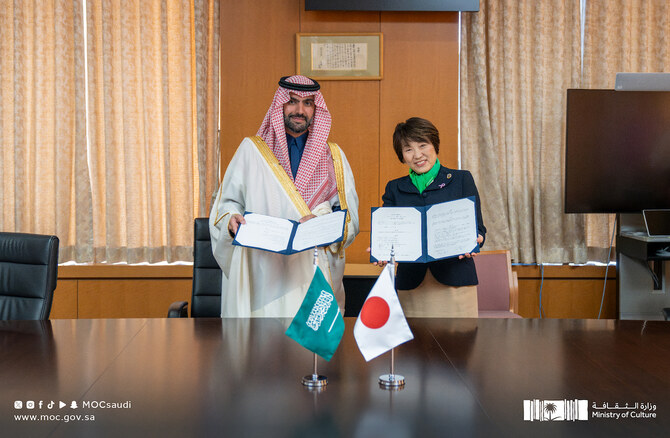MAKKAH: The Ministry of Hajj and Umrah has begun distributing Nusuk cards for the Hajj season, with more than 150,000 cards issued and a daily production capacity of 70,000, the Saudi Press Agency reported on Saturday.
Printed domestically in state-of-the-art facilities under strict quality and security standards, Nusuk cards feature anti-duplication security measures to help personnel verify pilgrims’ identities and legal status.
Each card includes comprehensive pilgrim information, such as accommodation details in Makkah, Madinah and the holy sites, along with contact information for their service provider.
The cards aim to streamline pilgrim guidance and reduce cases of lost pilgrims, while also granting access to enrichment services, the SPA reported.
Printing will continue until all Hajj permits and visas are issued. International pilgrims will receive their cards on arrival through their service companies.
Domestic pilgrims can collect their Nusuk cards from service companies at designated gathering points before the Hajj season, the SPA added.
Meanwhile, the Ministry of Interior, through the General Directorate of Public Security, apprehended individuals engaged in fraudulent activities by posting fake and misleading Hajj campaign ads on social media.
The ads falsely offered pilgrim housing and transportation within the holy sites, Hajj on behalf of others, sacrificial animal services, and Hajj bracelet sales.
The ministry said that the perpetrators were arrested, legal proceedings initiated, and they were referred to the Public Prosecution.
It clarified that domestic pilgrims must obtain Hajj permits through the Ministry of Hajj and Umrah’s Nusuk platform, while international pilgrims must use authorized entities via the Tasreeh unified digital platform.
Regarding sacrificial animal (hady, adahi, fidyah, sadaqah) bonds, the ministry confirmed that the Saudi Project for Utilization of Hady and Adahi (adahi.org, unified number 920020193) is the sole authorized provider.
The Ministry of Interior urged citizens and residents to comply with all regulations and report violations by calling 911 in Makkah, Riyadh and the Eastern Province, and 999 elsewhere in the Kingdom.
The Ministry of Tourism has mandated that from April 29 until the end of the Hajj season, all travel agencies, tourist facilities and accommodation providers in Makkah must not complete bookings or check-ins for incoming or resident visa holders, except those with a valid Hajj visa or an official permit for work or residency during the season.
This measure aligns with the Ministry of Interior’s arrangements requiring all other visa holders to leave Makkah starting April 29 to ensure pilgrim safety.
All tourist facilities and online booking platforms must fully comply with this mandate to support a safe and organized Hajj, the SPA reported.
The Ministry of Tourism also stressed that hospitality providers and online platforms must cooperate with authorities, warning that non-compliance would result in legal penalties for establishments and individuals.
The Ministry of Human Resources and Social Development announced its readiness for the Hajj season, launching initiatives and services to enhance the pilgrim experience in line with leadership directives.
Key efforts include streamlining temporary work permits through the Ajeer portal and issuing Hajj work visas to support businesses hiring seasonal workers.
The ministry will also increase inspection visits to ensure compliance with the Labor Law and its regulations, the SPA reported.
Social services at the holy sites will offer family counseling, social support and well-supervised children’s hospitality centers staffed by qualified personnel.
Additionally, the ministry is promoting volunteer work such as welcoming pilgrims at border crossings, assisting at the holy sites and the Grand Mosque, helping the elderly and disabled, and distributing meals and water.
The Ministry of Islamic Affairs launched a new digital Hajj guide available in Arabic, English, French, Urdu, Malayalam and Turkish.
It will be distributed through electronic libraries at miqats and mosques, as well as on Saudia flights, to educate and guide pilgrims on Hajj rituals and regulations.




























